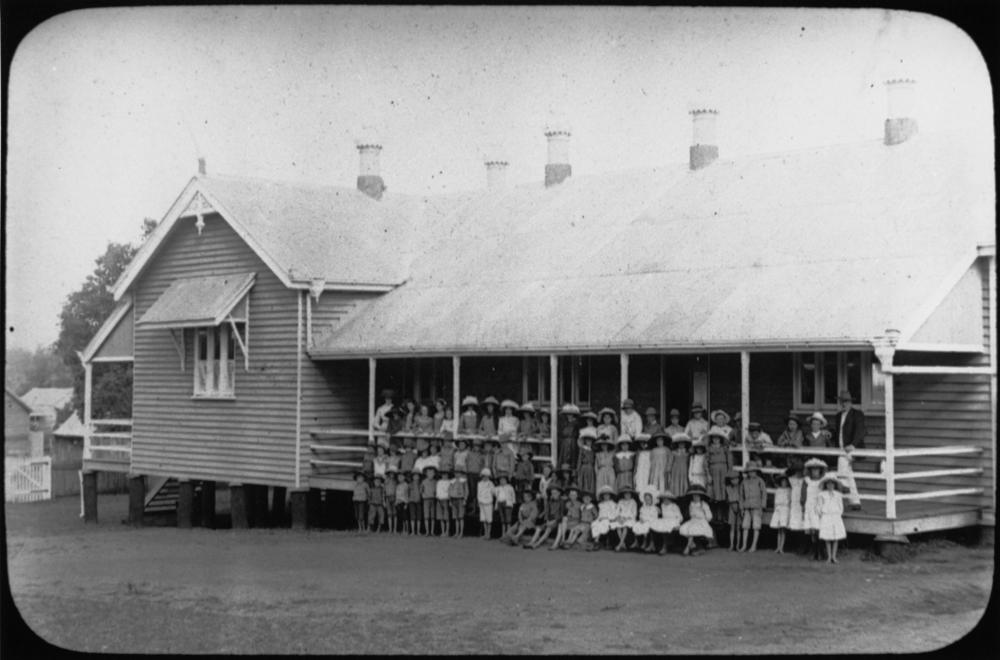Eidsvold is a small town in the North Burnett region of
Queensland. It is situated on the Burnett Highway approximately 430 kilometres
north of Brisbane. The town is the self-proclaimed Beef Capital of the Burnett
and is a hub for the regional cattle industry. At the 2006 census, Eidsvold had
a population of 459.
Considering Eidsvold Goldfield was only established by
proclamation on November 17 1887, the people of the township which quickly
sprang up did quite well to have obtained a school by early in 1889. The Eidsvold
Provisional School was opened on April 1 1889 in a nine metre by five metre
building with galvanised iron roof. The first teacher appointed was Mr. Arthur
McKenzie. The attendance for the June quarter of 1889 was 161, a considerable
increase on the opening attendances of approximately 100. It is not surprising
that requests were immediately made for a bigger school and on October 27 1890,
the provisional school was moved into a more suitable building. The state
school was opened in 1892 after a new building was completed. During the 1890s
the attendances rose dramatically and accommodation problems and staffing
difficulties predominated. Pupil teachers were used to overcome staff problems
and in 1900 the school's staff consisted of the head teacher, two assistant
teachers and two pupil teachers. In 1965, the opening of a secondary department
for the post-primary education of Eidsvold youth to Year 10 level met a gaping
need. The attachment to the school of the preschool to satisfy pre-compulsory
education need and the extension to Years 11 and 12 in 1986 allowing students
to undertake post-compulsory education supported the concept of developing the
total individual.
The Archer brothers were the first settlers of this district in
1848, and named their home run Eidsvold after the town of Eidsvoll in Norway,
where they had landholdings - also where that country's constitution was
signed. By 1850 several large holdings including Eidsvold Station had been
taken up, deriving their income from sheep until a series of droughts in the
1880s led to the demise of the native grasses; spear grass took over, which
proved fatal to sheep. This led to the introduction of cattle to all
properties, and today citrus orchards, agriculture, timber and fat and store
cattle form the basis of the district's economy. Gold was being mined in the
area as early as 1866, but it was not until 25 July 1887 that the mining warden
Mr E.F. Craven, declared Eidsvold as a Goldfield. This led to the establishment
of the town at the foot of Mount Rose, and a typical Australian goldfield
emerged. By the early 1900s the large payable reefs had petered out, and the
town became a quiet country village which it remains today.
Eidsvold belongs the slogan of Beef Capital of the Burnett,
through its long association with the industry, and in 1932 a world record
7,482 head of cattle were sold in one day at the Martin Snelling Saleyards.
Henry Collins (Olympic boxer Sydney 2000) went to school at Eidsvold.
